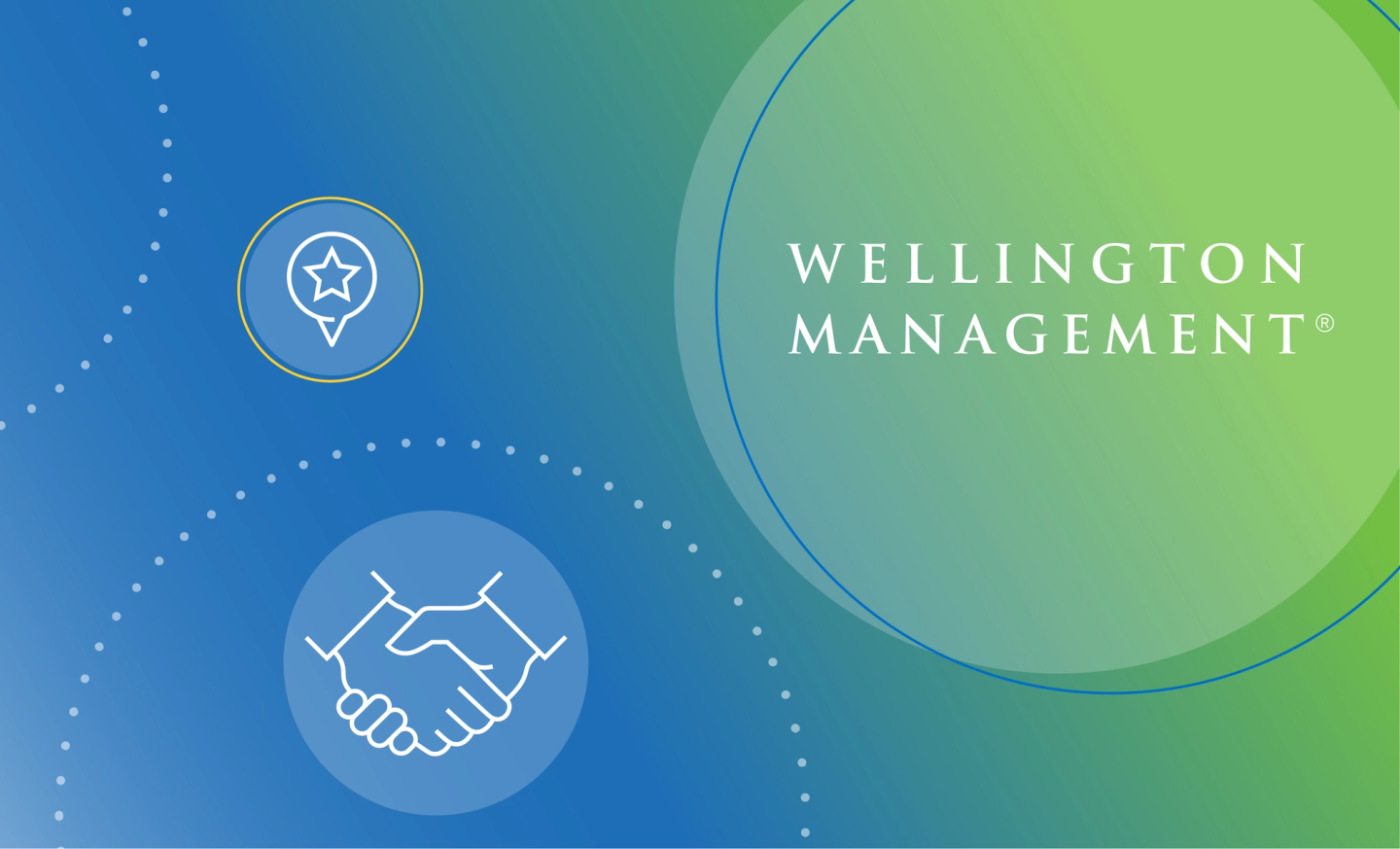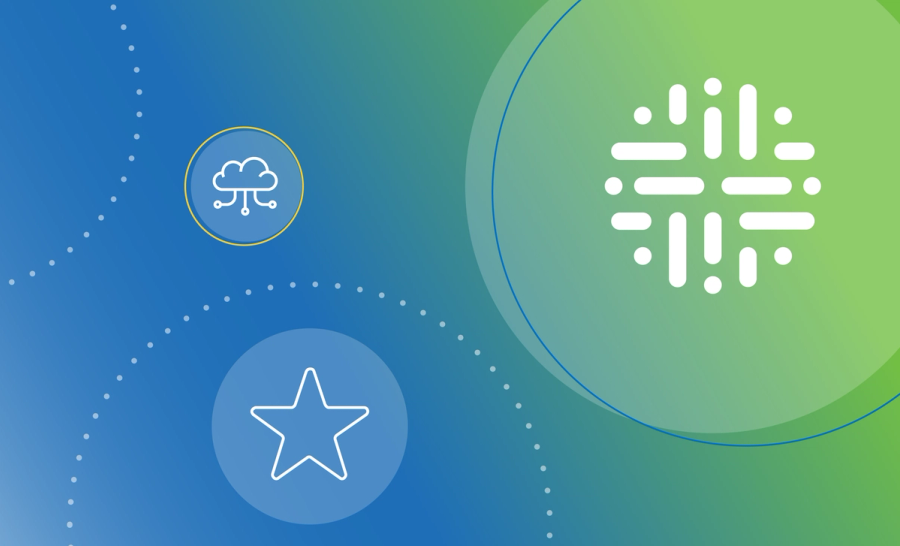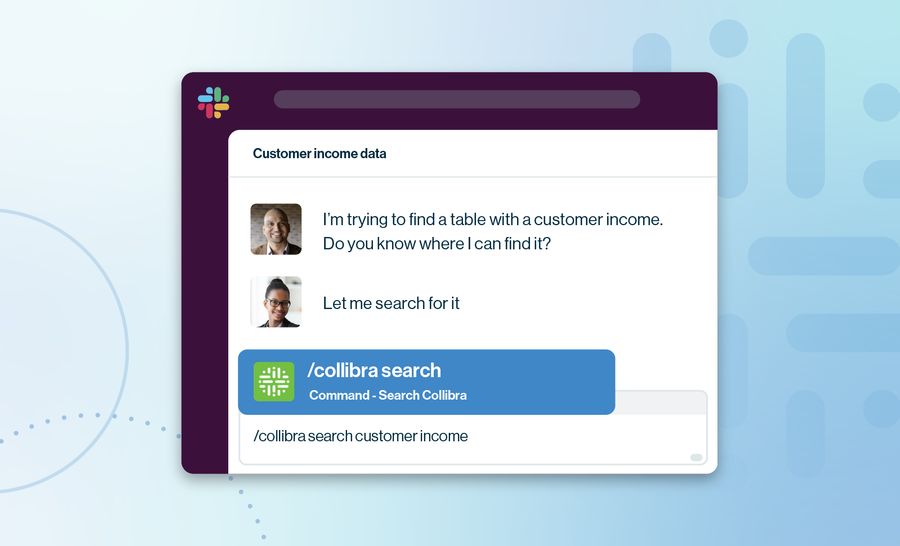Wellington Management sets the bar for collaborative partnerships in data governance

Many people talk about partnerships in the business world, but a true, symbiotic relationship between customers and vendors is exceedingly rare.
That’s what makes our work at Collibra different. We deliver data intelligence to some of the world’s most innovative companies, firmly aligning our development priorities with our customers’ goals. Our resources — from pre-built integrations to out-of-the-box privacy solutions — are continuously evolving to meet the emergent needs of the organizations we work with.
To share an example of this collaborative partnership, I sat down at Data Citizens 2024 with Collibra’s Principal Customer Advisory Director Laurent Weichberger and two of our trusted partners from Wellington Management: Managing Director of Enterprise Data Governance, Stewardship, and Analytics Paula Timofeev and Enterprise Data Governance Platform Principal David Wright.
In my role as an Enterprise Customer Success Manager, working closely with Paula and David has made it possible to push the limits of our data governance capabilities and drive new solutions on the Collibra platform. It’s truly a collaborative business partnership.
Read on to discover how we’ve redefined the customer-vendor relationship with Wellington Management, and register for free on-demand access to watch our full conversation and many more inspiring sessions from Data Citizens.
Wellington’s vision
Wellington Management is a global investment advisor with more than $1.2 trillion in assets under management. Its clients are based in 62 countries, and the firm employs more than 900 investment professionals. To deliver superior investment decision-making, Wellington relies on research from over 100 market data providers.
Needless to say, that’s a lot of data.
“Much of our [data governance] program is designed around making sure that our investors, our client teams, and the regulators have the data that they need to do their jobs effectively,” Paula explains. Clients, in particular, expect to find, manage, and understand information about their investments, and employees need a system that’s both easy to navigate and capable of powerful insights.
“The core philosophy for us is to keep [data governance] simple — make it accessible, easy to adopt, and easy to maintain,” Paula adds. This prioritization of user experience remained top of mind when Wellington first joined forces with Collibra.
Defining partnership
In 2017, Wellington’s investment science team initiated an RFP process for a metadata catalog for alternative data sets. The company had already developed many of its own tools for data delivery and analytics, and as important as the catalog was for centralized data governance, switching to a new platform was a daunting prospect.
“Sending [our employees] to another tool is a nonstarter for us,” David emphasizes.
Paula recalls receiving Collibra’s proposal to help users find and access trustworthy data. “It was a match made in heaven,” she says. “We had a common true north of what we were trying to accomplish.”
Yet one thing was clear from the start: Wellington Management was not simply buying a product, and Collibra was not simply delivering a service. Wellington envisioned its data management framework as an ambitious, trailblazing project, stretching beyond the limits of Collibra’s platform capabilities at the time. Success would require a collaborative working relationship.
Understanding the need
“When we started to build [the data governance program] out, we were creating some custom assets,” David says. “Sometimes, we were a little bit ahead of when something would be introduced in Collibra.”
For instance, Wellington needed stronger capabilities to identify data domains than what earlier versions of Collibra’s platform offered. (Now, of course, data domains are a standard, out-of-the-box asset for Collibra customers.) But if Wellington’s product team made a custom workaround, they risked compatibility issues between their in-house solution and Collibra’s next version.
To overcome this challenge, Wellington engaged in honest, crystal-clear conversations with Collibra’s developers about improvements to the operating model — an unusual level of candor in a vendor relationship. Knowing a requested feature was coming soon, Wellington could decide to wait for it or build an in-house solution that would easily dovetail with Collibra’s capability once released.
Roadmaps for development
This open dialogue about new features is what makes our partnership with Wellington symbiotic. The Wellington team’s ideas for enhancing integrations influence how Collibra’s developers improve our product.
But I had to ask: If Wellington had the resources to create in-house solutions and even work ahead of Collibra’s product team, what was the benefit of moving to a Collibra-developed approach?
“To avail [ourselves] of the other things that are based in the platform,” David explains. “The more you can stay out-of-the-box, the better.” From data lineage capabilities to data quality and observability tool sets, Wellington saw the long-term benefit of aligning with Collibra’s platform for sustainable future growth.
As they looked ahead at their data experience roadmap, the Wellington team recognized that Collibra integrations would ultimately save time and free up resources to address new challenges in operational risk, expanded data quality adoption, or other emergent product needs.
Focus on outcomes
To that end, successful communication between our team and Wellington’s has remained focused on outcomes. There’s no better example of this than how Wellington submits feature requests.
Laurent explains: “[Wellington] is extremely sophisticated in giving us acceptance criteria and requirements … They have paragraphs of explanation about the [requested] functionality and what it needs to do and how.” Instead of tedious back-and-forth exchanges to clarify the request or an end product that doesn’t satisfy the need, Collibra’s development team can simply write the code that meets Wellington’s criteria.
We see a similar level of communication with support tickets. “Our team will always [explain] how we want a bug to be fixed,” David adds. Collibra’s engineers receive clear end-user details from Wellington to immediately hone in on the problem.
In return, Collibra can deliver accurate, transparent updates on the timeline to patch the issue or refine our approach to enhancing the product. This clarity allows Wellington to allocate their resources efficiently by structuring product management around the availability of new features.
Open, direct and kind
Paula manages around twenty people across six locations. Each year, the team meets for an on-site planning and innovation session — which Collibra is honored to join.
“Partnership is so important, that we’re aligned in what we’re trying to do,” Paula says. “You need everyone working in the same direction.” After several years of partnering in this way, she considers Collibra to be an extension of her team.
Laurent agrees. “[Wellington is] extremely reasonable in their expectations. They know about the software development lifecycle. They know about how things work and what’s possible and not possible,” he adds. “We know how to work together and make things happen.”
That’s not to say there are never bumps in the road. Yet when either side has critical feedback, we’re aligned in valuing open, direct, and kind communication. As a customer success manager, I’m used to putting out fires, so I especially appreciate Wellington’s respectful, level-headed approach to problem-solving.
Where we go from here
As we look ahead to more advanced data quality products, expanded integrations, and using artificial intelligence to enhance data lineage capabilities, our partnership with Wellington Management will continue to help us solve real-world use cases. This is what we consider a symbiotic relationship: We push each other forward to better outcomes.
For all of our customers, I hope Wellington’s story inspires open conversations about your vision for how Collibra’s capabilities can deliver new value to your business. As customer success managers, our doors are always open. It’s likely our team can develop a solution tailored to your specifications. All you have to do is ask.
***
This article is based on a breakout session at Collibra’s Data Citizens 2024 conference in Orlando, FL. Learn more about our data governance program, and request a personalized, one-on-one demo with a Collibra expert today.
In this post:
Related articles

Data GovernanceFebruary 14, 2025
Why we are the data and AI leader for you

Data GovernanceJuly 28, 2025
Your new shortcut to trusted data: Collibra’s two-way Slack Integration

Data GovernanceMay 24, 2022
The journey to data catalog and governance success: A customer perspective

Data GovernanceOctober 12, 2023
Improved user provisioning leads to calmer seas and smoother sailing
Keep up with the latest from Collibra
I would like to get updates about the latest Collibra content, events and more.
Thanks for signing up
You'll begin receiving educational materials and invitations to network with our community soon.
